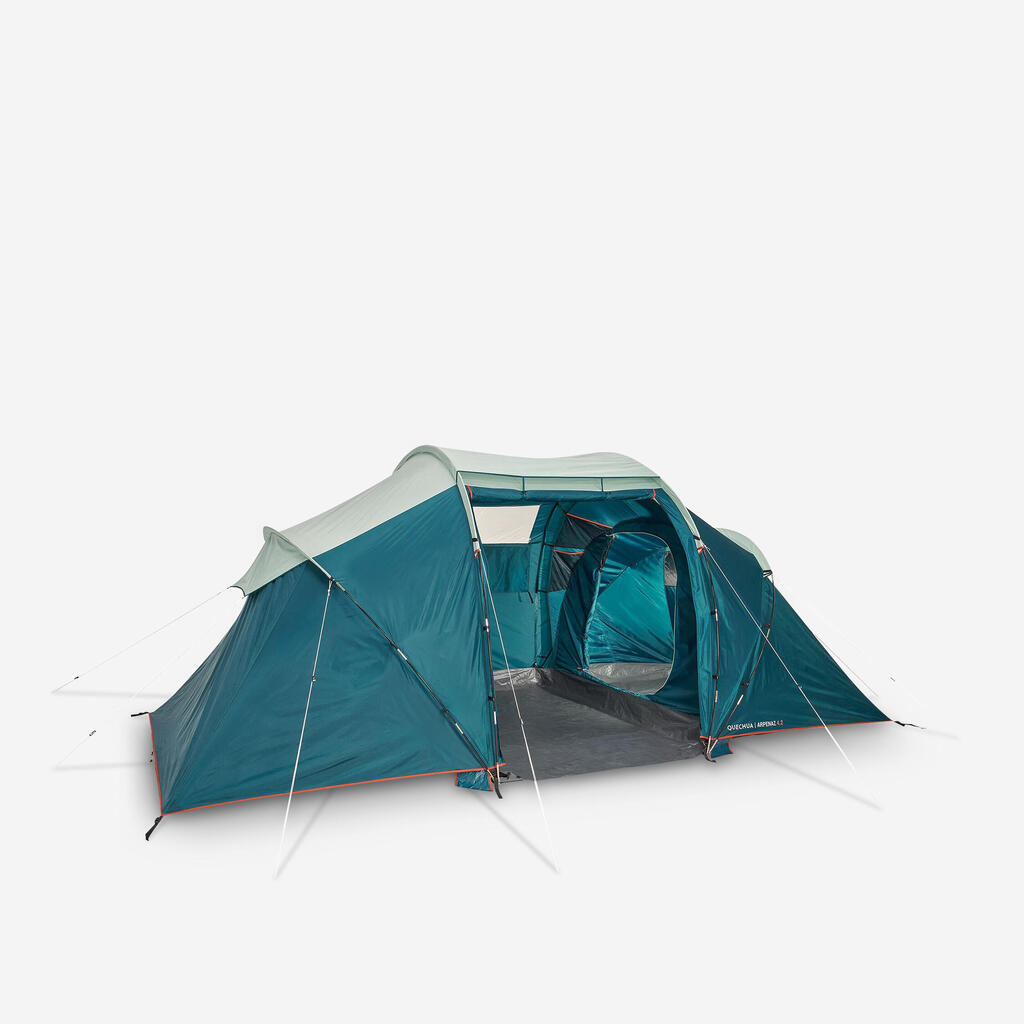What is the inner tent height and surface area of the living area?
3.5 m² living area and an inner tent height of 1.90 m.
This tent is fitted with a basin groundsheet at the entrance which can be folded away in the event of rainy conditions and with 8 pockets in the living room (2 pockets on the outside of each bedroom too).
The 2 bedrooms in this tent are intended to accommodate a maximum of two 70 cm wide mattresses.
How do I set up and take down my tent?
Pole structure.
The colour codes are there to help you.
The coloured poles are inserted into their respective sleeves.
We recommend that 2 people pitch the tent.
Floor surface area with guy ropes: 20sqm
Sun protection
The flysheet fabric has UPF 30 sun protection.
Caution: be careful, as a large amount of UV rays can get in through a simple open door.
How does air circulate inside this tent?
The ventilated flysheet on the living area airs the room and reduces condensation inside your tent. High ventilation hatches are also provided at the front and back of the tent, along with high mosquito nets on the door and at the back of the bedroom.
Is this tent fully waterproof?
To check that it is waterproof, the tent was placed for three hours under a 200L shower of water per hour, equivalent to a tropical shower of 200mm per hour.
The flysheet is made from 2,000mm Schmerber PU coated polyester and all seams are sealed with thermobonded tape.
Is this tent windproof?
We test all our tents in a wind tunnel on a turntable. The aim is to expose each side of our tent to the same wind intensity.
Properly pitched, with the guy ropes deployed, this tent remains habitable in wind speed 6, measured at around 50 km/h.
Poles and tent pegs
Poles - All our poles are made from fibreglass and undergo double quality checks. This guarantees some of the best resistance against breakage.
Tent pegs - All our pegs are made of steel and have a diameter of 6mm.
How to care for your tent
Our camping tents have been designed for occasional outdoor use (4 weeks per year). These products are not classified as “garden furniture” and aren’t designed to be left outdoors permanently. Continuous exposure to UV rays can damage the fabric section. To ensure the optimal lifespan of your tent, it’s important to store it in a dry place when not in use.































































